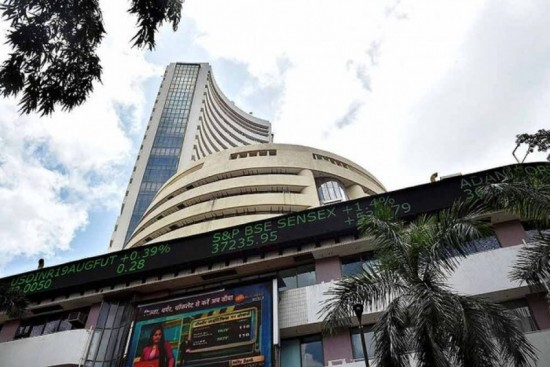The stock markets are into a tailspin these days after a whirlwind surge over last one month or so. Extending its losing streak for the fifth day in a row, equity benchmark Sensex plunged 536 points Thursday. From lows of 25,639 on March 24 last year when the Centre announced the world’s strictest lockdown, to an all time high of 50,181 on January 21 – it had been a phenomenal jump for the Sensex. The markets had rallied ahead of vaccinations and the surge held out as vaccinations expanded in phases. The rallies had even shrugged off sporadic news of adverse side-effects of the COVID-19 shots from across the country that included even fatalities. It was anticipated that the markets will hold ground right through the vaccinations. However, it was not to be. In the last five days, the Sensex has lost nearly 2,950 points – giving up all the gains of this year. Out of this, the last two days alone have seen a loss of 1500 points. The International Monetary Fund (IMF) putting out an impressive 11.5 per cent growth for India in 2021 – the highest for any major economy globally – did not support the markets.
The fall was due to heavy profit-booking by foreign funds (FIIs). Also, the market is overvalued from the perspective of PE multiple ratio and market cap to GDP ratio. In such situation, profit-booking is inevitable. The rally was not based on fundamentals, but grew on sentimental factors only. But, the more important factor leading to the sharp corrections is the anxieties building up before the Union Budget on Monday (February 1). It is feared that the government may affect a sharp hike in taxations to generate resources for the projected larger expenses for boosting healthcare and infrastructure. A rise in taxes will have a negative shadow on consumption and would eventually retard growth. Weak global cues have also impinged on Indian markets. New coronavirus variants forcing many countries to go for lockdowns and the frustrations over vaccine distribution must have spooked the global equity markets. Lack of clarity on President Biden’s policy is also working negatively on investors’ sentiments. The December quarter earnings have already been factored in the current surge in the equities. A poor performance by the market heavyweight Reliance Industries may have let down the investors – leading to a 2 per cent fall in the company’s shares. Going ahead analysts are concerned about the third quarter margins of companies.
The Union Budget coming on the heels of the debilitating pandemic will be a highly anticipated affair. Massive spend to be canalised for healthcare and allied sectors will force the government to think out of box to generate revenues. Thus the general belief is that the government will raise both direct and indirect taxes. The Centre has very little elbow room. It may choose to be conservative on the fiscal front and will target a lower deficit. However, the huge asking rate will skew the GDP projections. This must have prompted investors to hit the exit button before it becomes too late. Problems like massive joblessness and tepid consumption are the challenges facing the Indian economy. As per a CMIE survey, about 1.5 crore jobs were lost in the manufacturing sector during the first quarter of the lockdown (April-June). The service sector also took a hit which is yet to go back to the pre-COVID levels. The resilient farming sector is seeing disruptions. The government is yet to find a solution to the raging farmer protests that have bugged the Centre for over two months now. All this and some more will weigh heavily on the government ahead of the Union Budget.
